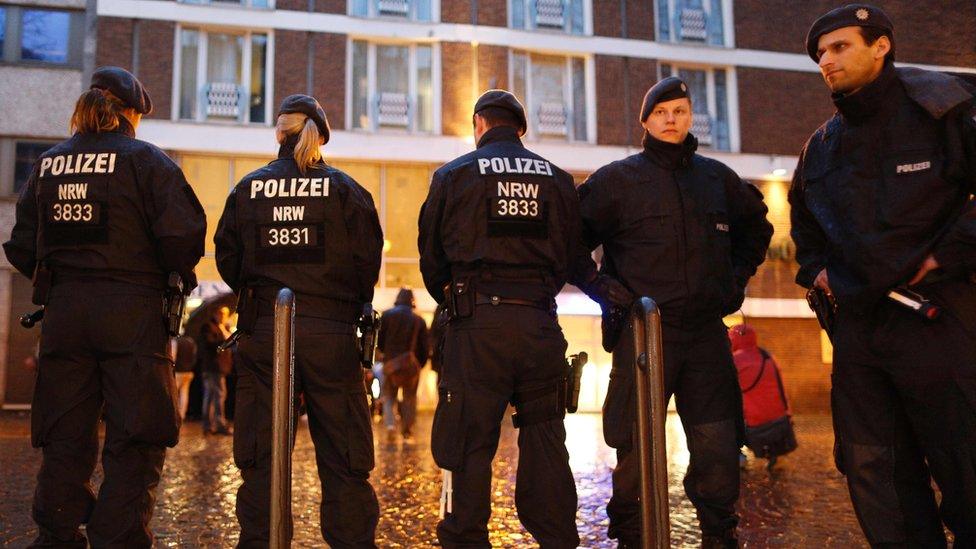Turkey-Germany: Erdogan urges Merkel to extradite Gulen 'terrorists'
- Published
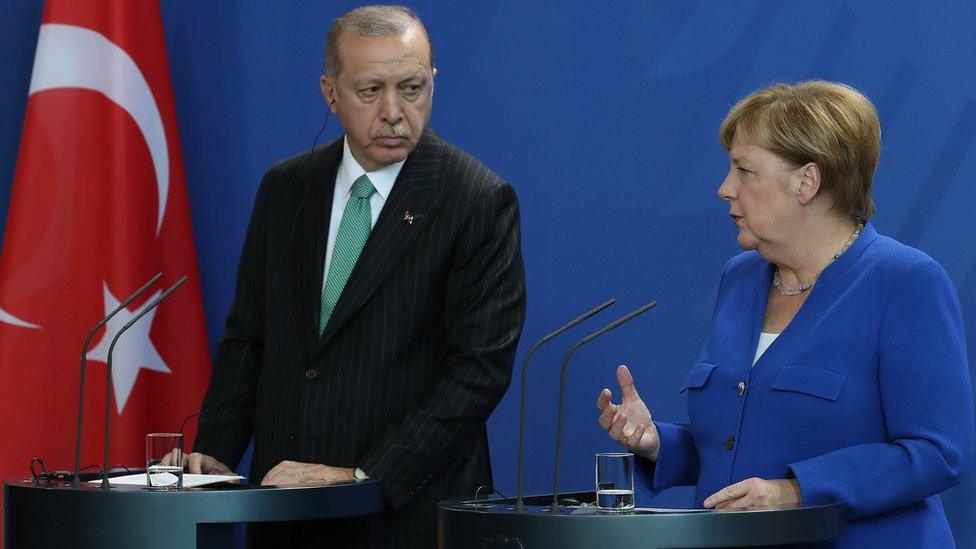
Relations between Turkey and Germany have been strained for some years
Turkish President Recep Tayyip Erdogan has called on Germany to extradite supporters of a US-based Muslim cleric whom he blames for an attempted coup.
Speaking in Berlin, he said Germany should designate followers of Fethullah Gulen as terrorists.
Chancellor Angela Merkel told a news conference that Germany needed more evidence against the group.
She also urged Turkey to quickly resolve cases of German citizens imprisoned in Turkey.
"I have pressed for it and will continue to do so, that these cases can be solved quickly," she said.
Mr Erdogan is on a three-day state visit to Germany try to improve strained ties between the two Nato allies. Relations have soured since Mr Erdogan launched a crackdown following the 2016 failed military coup.
Heavy security is in place in Berlin, where police expect street protests by pro- and anti-Erdogan groups. Germany is home to three million ethnic Turks.
What did Erdogan say?
The Turkish president said there were hundreds of members of Mr Gulen's network - which he described as a terror organisation - in Germany.
"I believe in apprehending whoever, wherever, and handing them to Turkey," he told the sometimes tense news conference.
"Mutual confidence [and] the joint action of the Turkish and German intelligence organisations and our ministries will make things easier."
Turkey has designated the Gulen network and the Kurdistan Workers' Party (PKK) as terror groups and accused Mr Gulen of fomenting the 2016 failed coup in which at least 250 people died.
Nazi jibes and spying claims: Turkey and Germany's fractured friendship explained
Mr Gulen has denied involvement and the European Union says it does not share Turkey's view that his network is a terror organisation.
Mrs Merkel said Germany was seeking several people whose extradition on terror charges Turkey was demanding, but it was not certain they were in Germany.
"We take very seriously the evidence Turkey provided but we need more material if we are to classify it in the same way we have classified the PKK," she said on Friday.
Mr Erdogan also defended Turkey's right to demand the extradition of the journalist Can Dundar, former editor of Turkish opposition daily Cumhuriyet. Mr Dundar fled to Germany in 2016 after being convicted of revealing state secrets.
"This person is a convicted criminal according to Turkish law," he said.
The German newspaper Bild reported that Mr Erdogan had threatened to call off the news conference if Mr Dundar attended it.
Mrs Merkel said it had been Mr Dundar's decision to stay away.
The news conference was briefly interrupted when a man wearing a T-shirt with the slogan "Freedom for Journalists" tried to shout at Mr Erdogan. He was quickly escorted out.
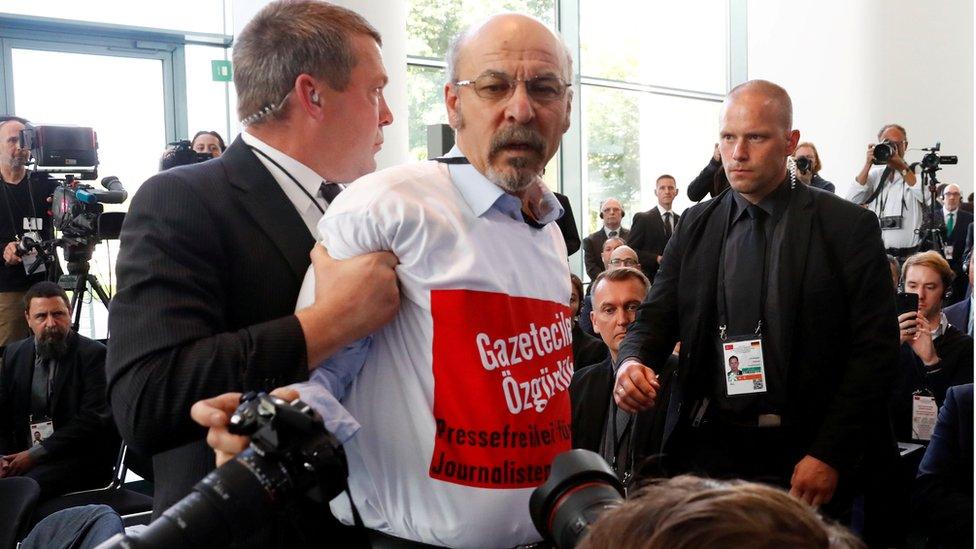
A protester was removed after heckling Mr Erdogan
What else was discussed?
Mr Erdogan said Turkey still wanted easier access to the EU for its citizens.
"We are planning to fulfil the remaining six criteria for visa liberalisation as soon as possible," he said.
"Visa liberalisation, updating the customs union and reviving accession talks will benefit both Turkey and the EU."
Mrs Merkel said she was pushing for the release of German citizens who are among the tens of thousands of people arrested in a series of purges.
Mr Erdogan's critics say he has used the failed uprising as an excuse to stifle political opposition and a free press.
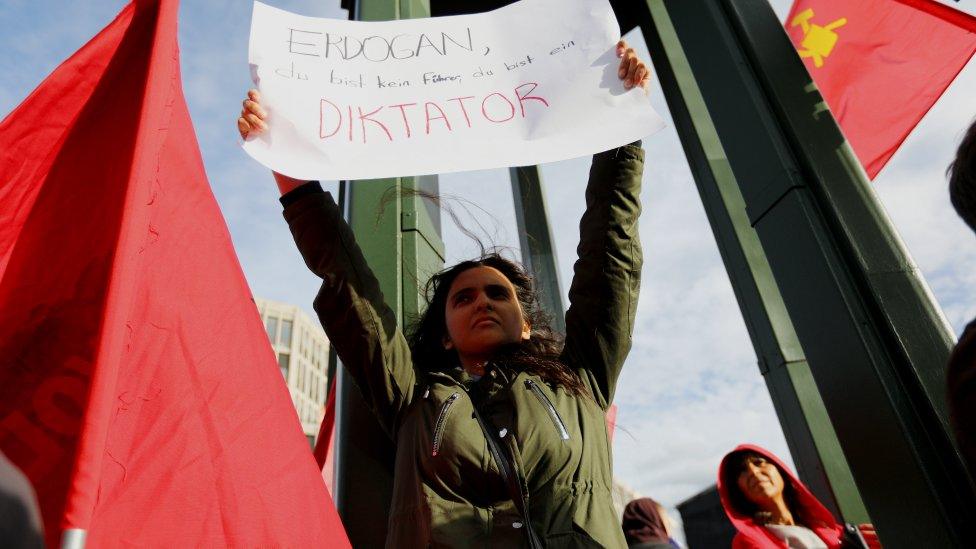
Anti-Erdogan protesters staged a rally in Berlin
Mrs Merkel told the news conference that the two governments had a different perception of what a free, democratic society looked like.
Mr Erdogan called for an end to complaints that Turkey's justice system lacked independence.
"Just as I can't interfere in the German justice system and criticise it, you don't have the right to criticise the Turkish legal system or judiciary. Because the judiciary is independent and you have to respect their judgements," he said.
Mrs Merkel also announced that she and Mr Erdogan would take part in a summit in October with the leaders of Russia and France to discuss the situation in Syria.
Syrian government troops backed by Russian forces are poised to launch an offensive on the rebel-held province of Idlib, prompting fears of a humanitarian disaster.
She said she and Mr Erdogan would discuss Idlib in more depth on Saturday.
Mr Erdogan is due to attend a state banquet in his honour later on Friday.
- Published28 September 2018
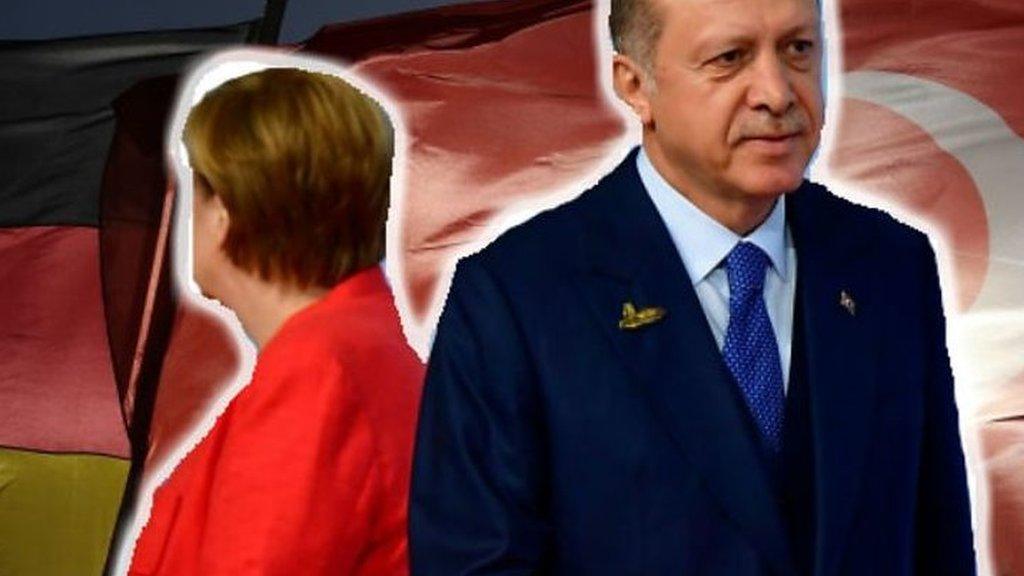
- Published29 July 2016
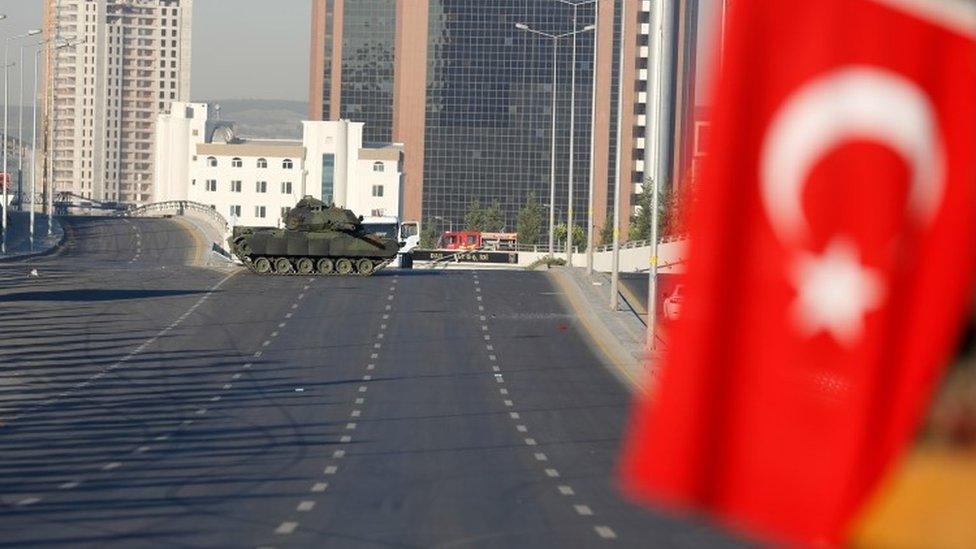
- Published26 September 2018
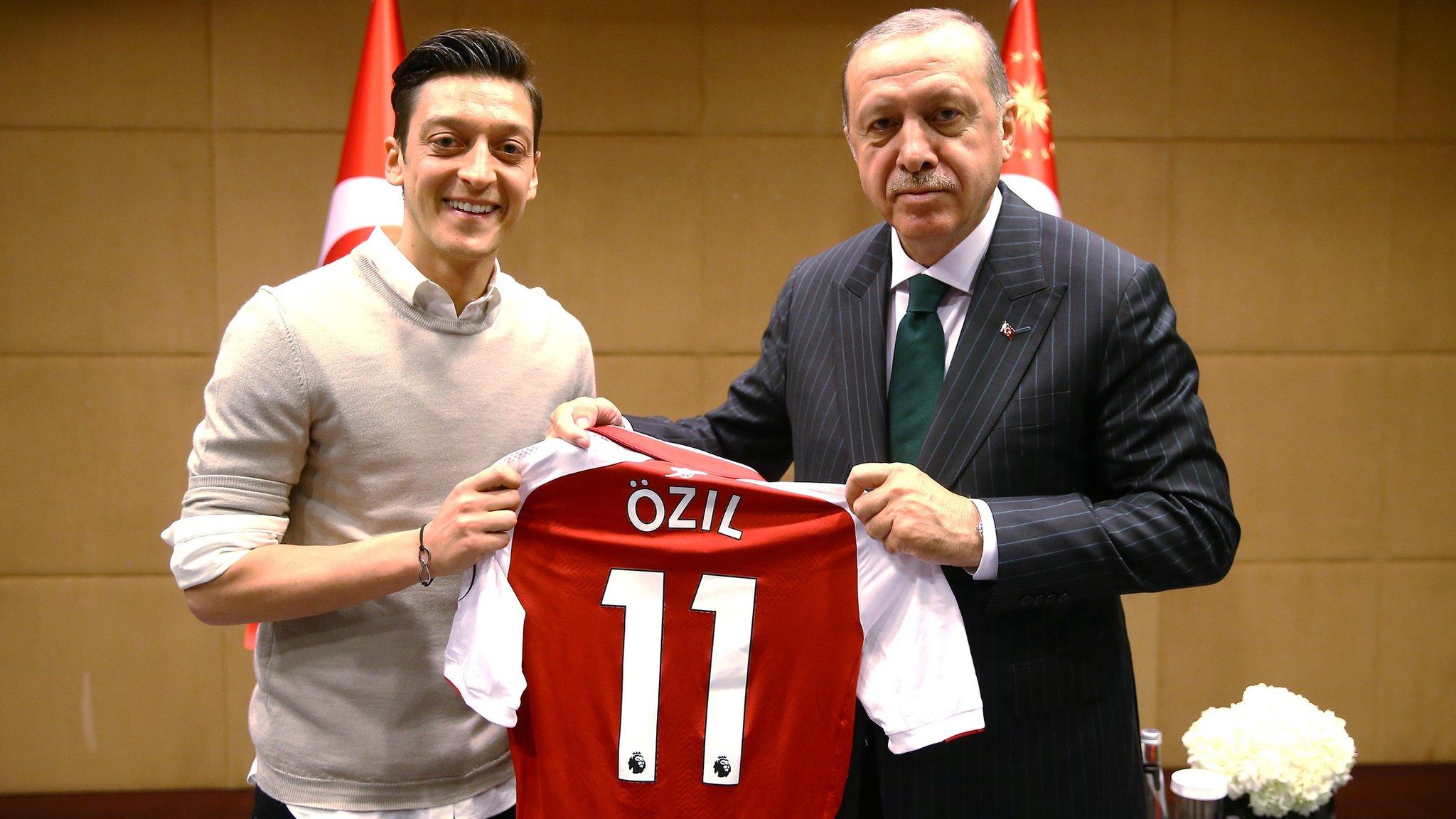
- Published29 August 2018
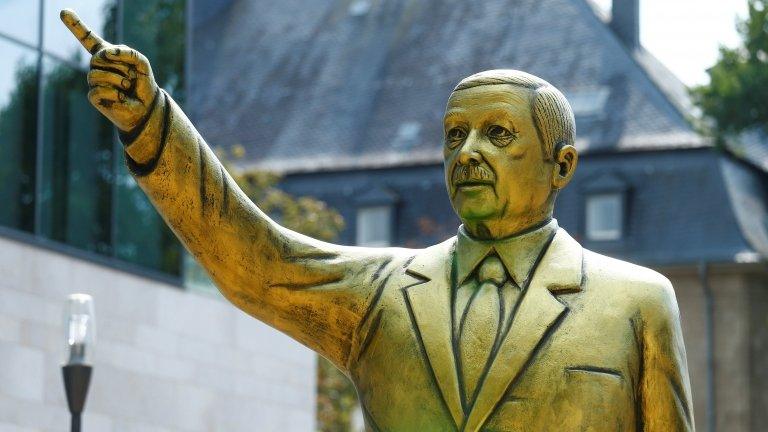
- Published18 August 2017
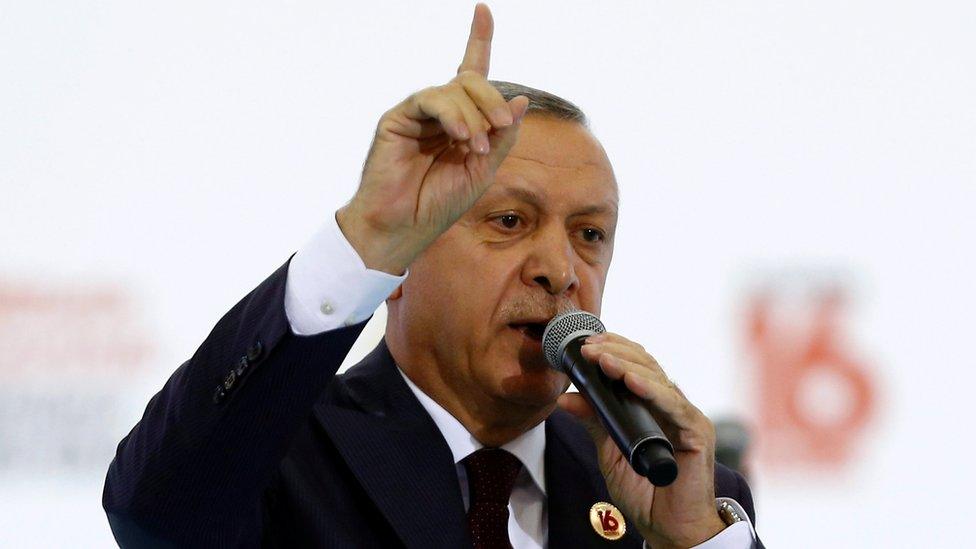
- Published15 May 2018
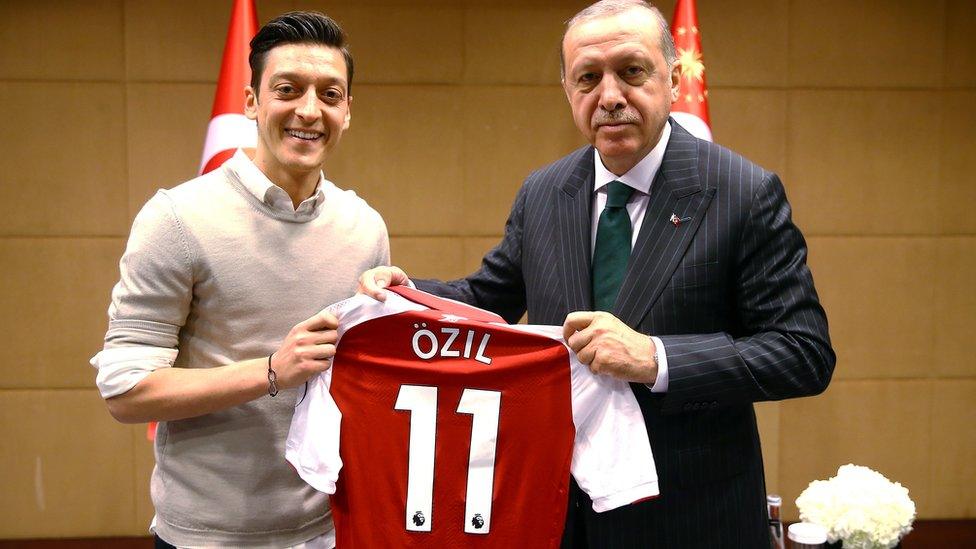
- Published23 July 2018
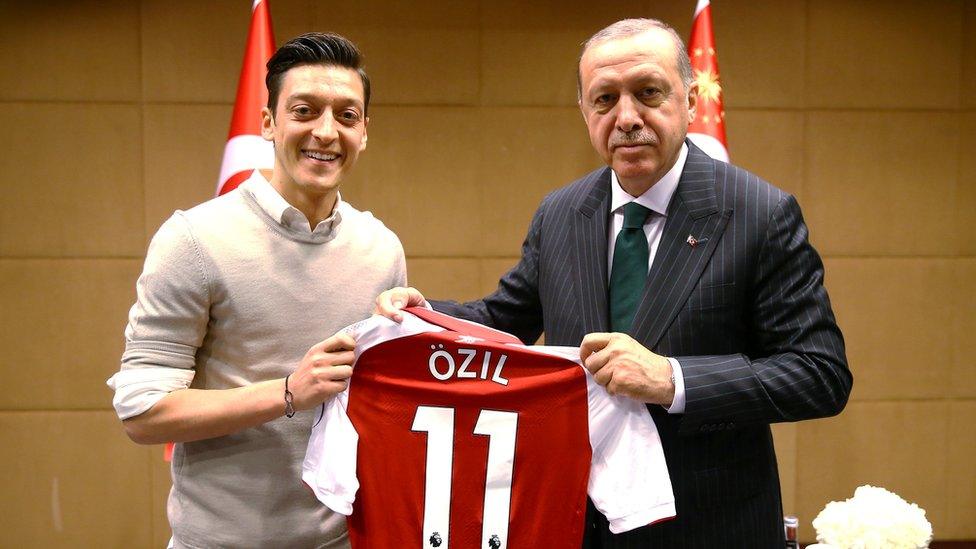
- Published20 May 2018
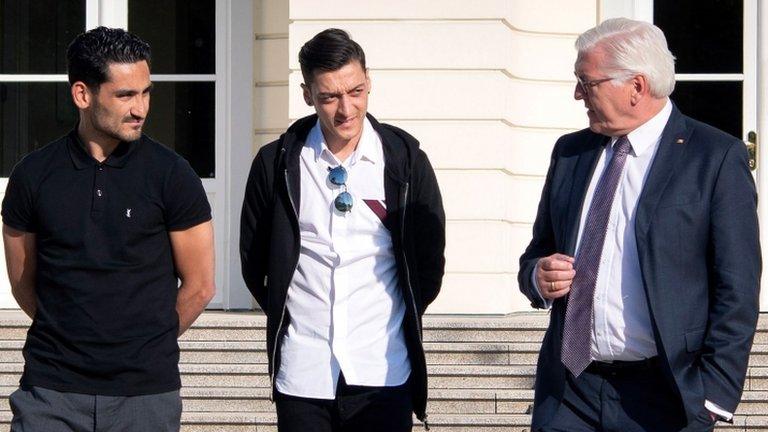
- Published21 June 2018
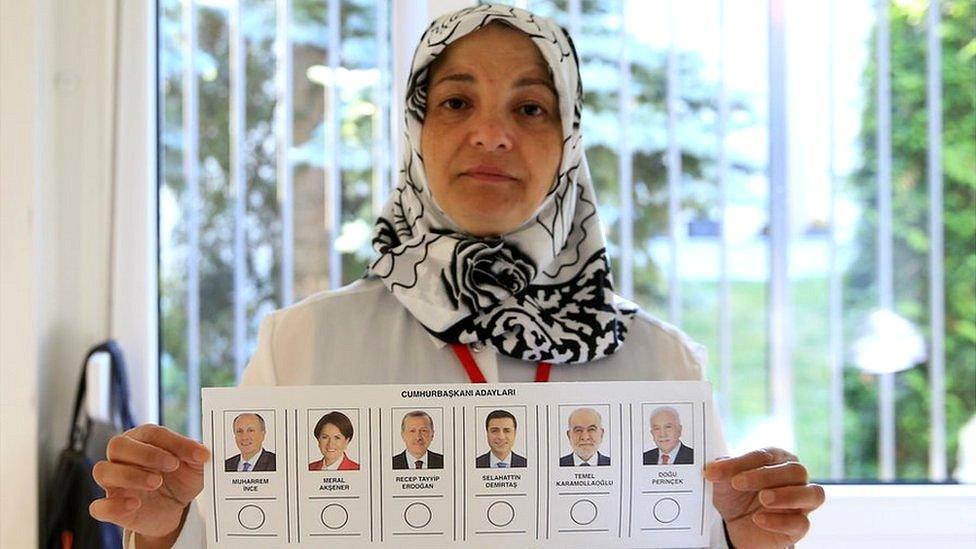
- Published1 March 2017
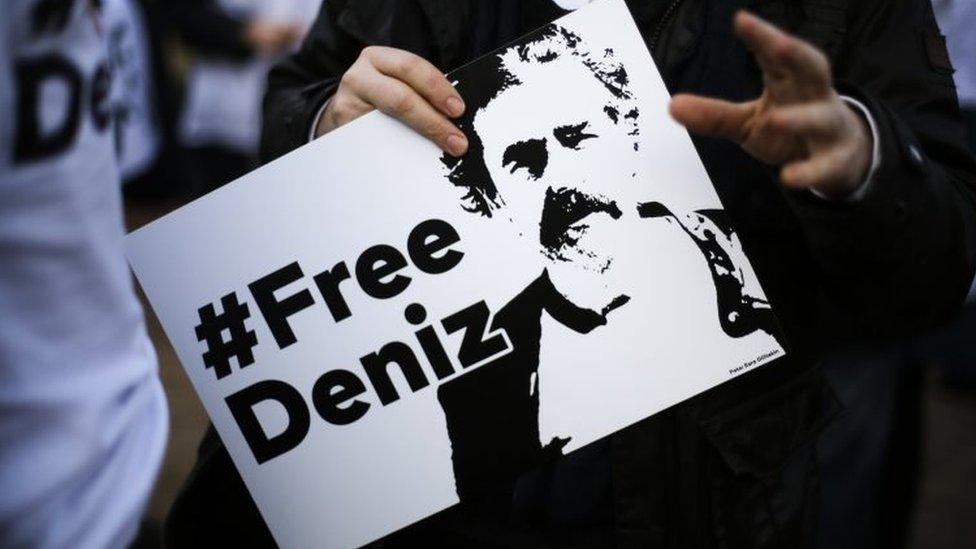
- Published3 March 2017
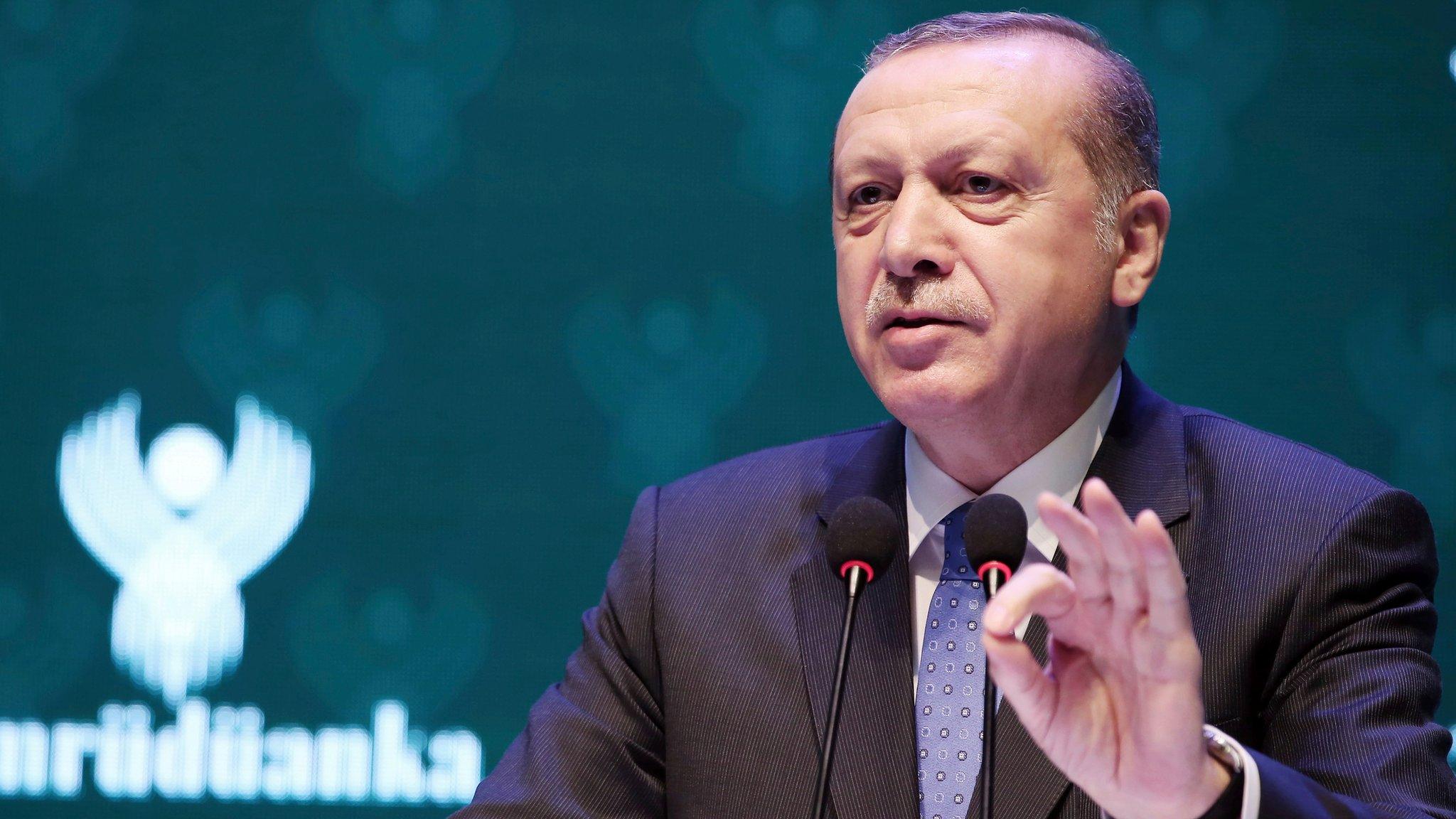
- Published29 June 2017
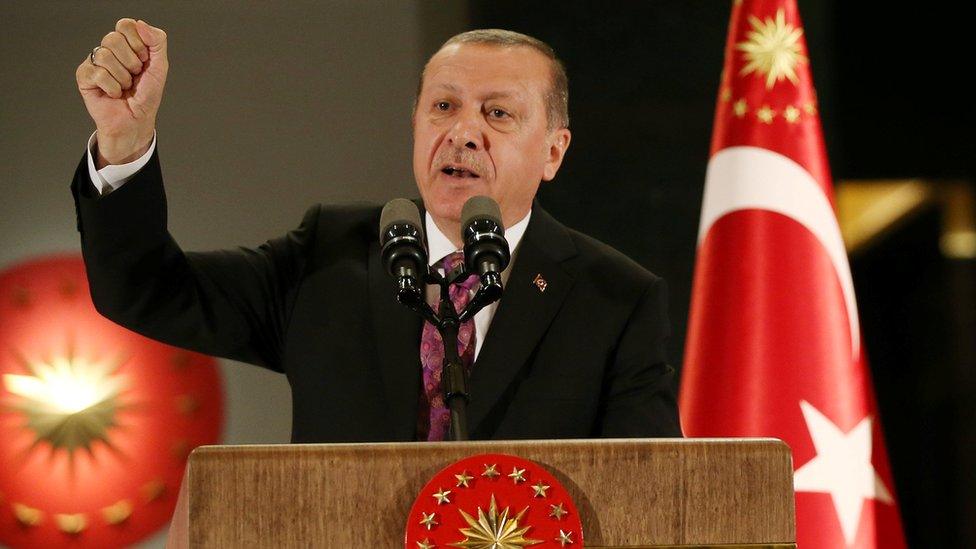
- Published5 March 2017
